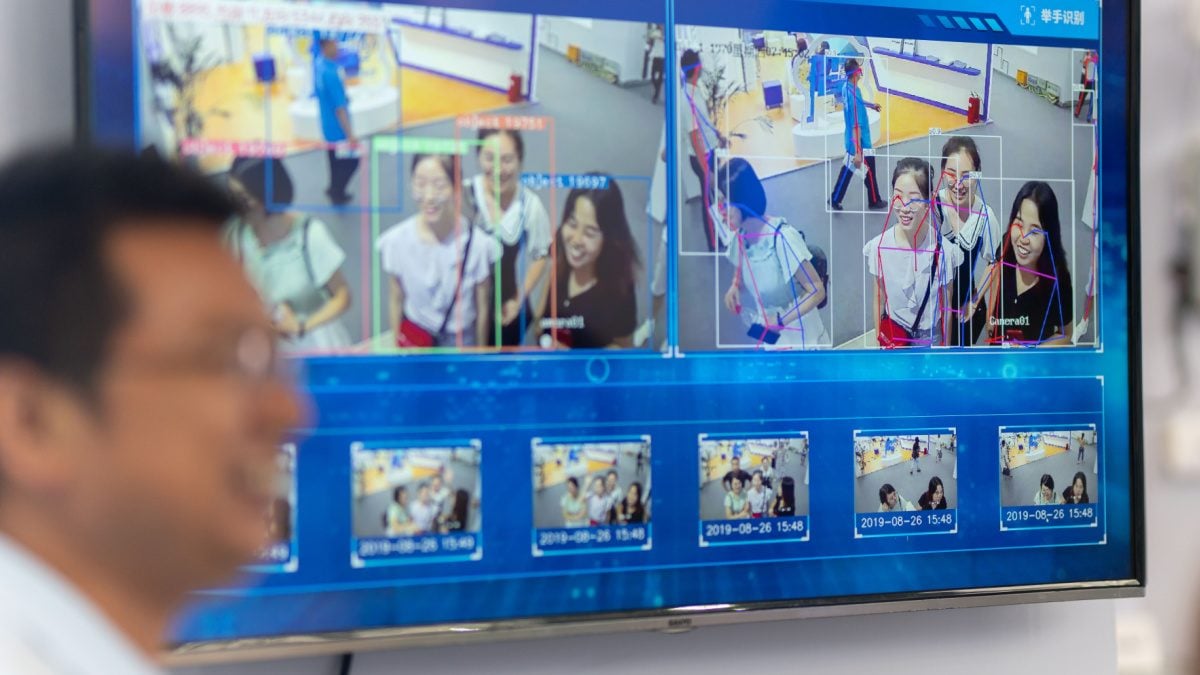
China has heavily relied on facial recognition technology for more than half a decade but its booming use has led to concerns among the public. (Image: Shutterstock)
China has released new rules this week which focuses on consent but it is doing so to give citizens a false signal that it encourages public debate.
The Chinese government, which for a long time has relied on facial recognition, decided on Tuesday to release new rules to curb the use of the technology. It has limited the use of the technology for so-called national security related uses, The Wall Street Journal said in a report.
The Cybersecurity Administration of China, the regulator of the internet in the country, said the technology will be used in cases where it has a specific purpose and is sufficiently necessary.
The use of the technology for identifying race, ethnicity, religious belief or health status is now banned. It can only be used if the person has given consent or for purposes limited to safeguarding national security.
These new rules, according to the report by The Wall Street Journal, makes China’s rules on private and commercial uses of facial recognition look somewhat similar to those in the West. However, exceptions are only there for national-security-related uses of the technology.
An expert told the newspaper that it is a “sweet and sour approach of Chinese governance” where it is trying to balance its ability to threaten people’s privacy but now also has concerns about the misuse of the powerful technology.
China in the past few months has made moves to put checks and balances on how Chinese tech companies use data and artificial intelligence. It implemented rules on deep fakes, AI-generated media and other generative AI tools.
Chinese citizens have been using facial recognition technology for the past seven years where they can use their face as a form of identity in malls, office buildings, airports and hotels.
Citizens can even use this technology to pay for items in certain stores, entering buildings and for identity checks before boarding a plane.
Surveillance cameras are a common sight in several Chinese cities and the suppliers of this technology have partnered with local police to provide the technology for security purposes. However, they not only track criminals but also ethnic minorities, dissidents and whosoever the government in China deems threatening national security.
The technology has come under fire from the international community because of its use in curbing so-called dissent in the northwestern region of Xinjiang. Facial recognition technology is being used to attack and forcibly assimilate Uyghurs and Turkic Muslim communities.
Police use the technology to track and sort Uyghurs who they suspect of dissenting and then send them to internment camps for political indoctrination, the report said.
China defends its use by claiming that the tool is used to prevent terrorism.
It should be noted that there was also a lawsuit filed against the technology when a law professor was denied entry to a zoo in Hangzhou when he did not agree to use the facial-recognition system to gain entrance to the zoo.
The court sided with the law professor and ordered the zoo to pay damages to Guo and delete his data. However, the court did not comment on whether it was legal for the zoo to continue to force visitors to undergo facial recognition.
A 2019 survey by Chinese think tank Nandu Personal Information Protection Research Center found out that Chinese citizens were concerned about their personal information being leaked due to a lack of data security.
The new rules say that facial data shouldn’t be collected and used without consent. This, however, is also a main aspect of China’s 2017 Cybersecurity Law which requires the need for individual consent for personal-data collection.
There are more new rules like facial recognition should not be used in hotel rooms, bathrooms or toilets as Chinese citizens have highlighted earlier to the government. Entities have been told to not pressure individuals to adopt face recognition to establish their identity.
Experts told the news outlets that it is the Communist Party of China’s (CPC) attempt to show citizens that they acknowledge public debate while maintaining control on national security.


